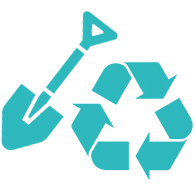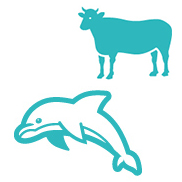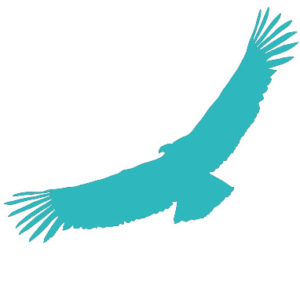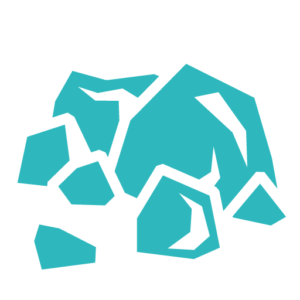Willow Bend offers unique in-class programs designed to supplement teachers’ science and/or social studies curricula. Our programs are locally focused, age-appropriate, standards-aligned, and activity-based.
Here's a list of our available programs. In addition to these programs, we may be able to adapt other grade level programs to meet your needs. For an extra cost we are also able to develop alternative programs specifically for your class or school.
Elementary school programs typically run around 50 minutes (30 minutes for Kindergarten). Programs cost $210 per class per program. We work with one class at a time. For longer programs and more information, please visit our FAQ.
Call (928-779-1745) or e-mail (info@willowbendcenter.or) us to discuss options and schedule a date and time for your program.
 Alien Plant Invaders
Alien Plant Invaders
Alien plants are invading Coconino County! Learn to identify some of our common exotic species and understand why land managers are so concerned with this “growing” problem.
![]()
Amazing Arachnids
An introduction to the amazing arachnid family.
![]()
Bats
Through posters and stories, students will learn how bats are like people! Be aware of potential Native American cultural conflicts.
![]() Bird Brains
Bird Brains
Explore the intelligence and natural history of local corvids (including ravens and crows). These common birds are actually very uncommon!
![]() Downtown Flagstaff Geology
Downtown Flagstaff Geology
Discover the history and geology of downtown Flagstaff with a focus on historic buildings made from local rock (basalt, limestone, sandstone, and dacite). Suggested follow-up field trip: “Downtown Flagstaff Geology.”
 Erupting Earth
Erupting Earth
Take a look at different types of volcanoes with an emphasis on northern Arizona and the San Francisco Peaks Volcanic Field.
![]()
Exploring Earthworms
By looking at real, live earthworms, students will learn more about these amazing animals and their role in composting. Suggested: can be part of the Waste Reduction Strategies Program.
 Fire Ecology
Fire Ecology
Are forest fires always a bad thing? We'll look at the role of fire in our Ponderosa pine ecosystem and discover how local land managers use fire to maintain and create healthy habitats.
 Forest Friends
Forest Friends
Students are introduced to the diversity of our Flagstaff forest ecosystems through forest artifact exploration.
![]() For the Birds
For the Birds
Students are introduced to bird watching and identification before sharpening their listening skills by identifying local bird calls!
 Grand Canyon Geology
Grand Canyon Geology
Explore the layers of the Grand Canyon, how the Canyon was formed, and why it is such a unique treasure. We will even create the Grand Canyon out of playdough!
![]() Groundwater in Flagstaff
Groundwater in Flagstaff
Arizona's Treasure. A Project WET Groundwater Flow model demonstration will help students understand where Flagstaff water comes from and why water in Arizona is extremely precious.
![]() From Trees to Paper
From Trees to Paper
Through storytelling and hands-on activities, students will learn the importance of trees, how they become paper, and why it is so important to recycle. Suggested follow-up field trip: “Recycling Center Tour”
 Images on Stone
Images on Stone
Through pictures of local rock art sites, students will learn the difference between pictographs and petroglyphs, explore the importance of historic rock art, and even make their own pictographs!
![]() Incredible Insects
Incredible Insects
Students learn the life cycle and body parts of these fascinating creatures through song and insect exploration. Suggested follow-up field trip: “Incredible Insects Field Trip”
![]() Life in a Dead Tree
Life in a Dead Tree
Students are introduced to the importance of snags (standing dead trees) for animals in the forest through a story and visual exploration.
 Life of a Bald Eagle
Life of a Bald Eagle
Students learn about fascinating bald eagle adaptations and their history with humans.
 Living within your Climate: From the Sinagua to Now.
Living within your Climate: From the Sinagua to Now.
Sustainable living isn’t a new idea! Learn about sustainability through local examples. We will study traditional techniques used by the Sinagua at Wupatki, Walnut Canyon, and Sunset Crater before looking at Willow Bend as a modern example of sustainable design and living. Suggested follow-up field trip: Wupatki or Walnut Canyon National Monuments with the National Park Service.
 Mammals
Mammals
Through games and imagery, students will discover mammal characteristics and the variety of mammals that live on the Colorado Plateau.
 Midnight Hunters: Owls
Midnight Hunters: Owls
Through hands-on activities and props, students will learn the importance of these hunters as well as their unique body adaptations for catching prey. Be aware of cultural conflicts.
 Mystery Animal
Mystery Animal
Students will learn how the California condor has come back from the brink of extinction and is once again wild in Coconino County. Keep the identity of this Mystery Animal secret from your students.
 People of the Grand Canyon
People of the Grand Canyon
Through creating a timeline, students will explore the past and recent history of humans visiting and living at Grand Canyon.
 Plant Power!
Plant Power!
Students will learn to use a basic dichotomous key, cultivate basic plant identification skills, and discover the traditional uses of eight local plant species.

Reason for a Flower
Learn about flower parts and pollination by examining real flowers (when available). Concepts are reinforced through body motions and a story.
 Rock Talk
Rock Talk
An introduction to igneous, sedimentary, and metamorphic rocks, including examples from northern Arizona. This program includes a hands-on collection of rocks and a very interactive game!
![]() Seasons of Trees
Seasons of Trees
Explore the life cycle of Flagstaff trees through a story, song, and guided imagery.

Seeds on the Move
Through a story and real examples, students will learn how seeds are dispersed.

Skulls
By studying bone structure and facial patterns, students will become skull detectives! The challenge is to identify various local mammal skulls. Be aware of cultural conflicts.

Tadpoles to Frogs
An introduction to metamorphosis and Arizona frogs and toads. Students may even get the opportunity to turn into frogs through guided imagery!
 Waste Reduction Strategies
Waste Reduction Strategies
A three part program exploring waste and waste reduction solutions. See special projects for more information. Supported by the Azulita Project and the City of Flagstaff. Suggested: add a field trip: “Recycling Center Tour”
![]() Water Quality
Water Quality
Students will learn the basics of water quality testing, focusing primarily on pH testing. Not all clear liquids are the same! Suggested follow-up field trip: “Water Quality Field Trip.”
